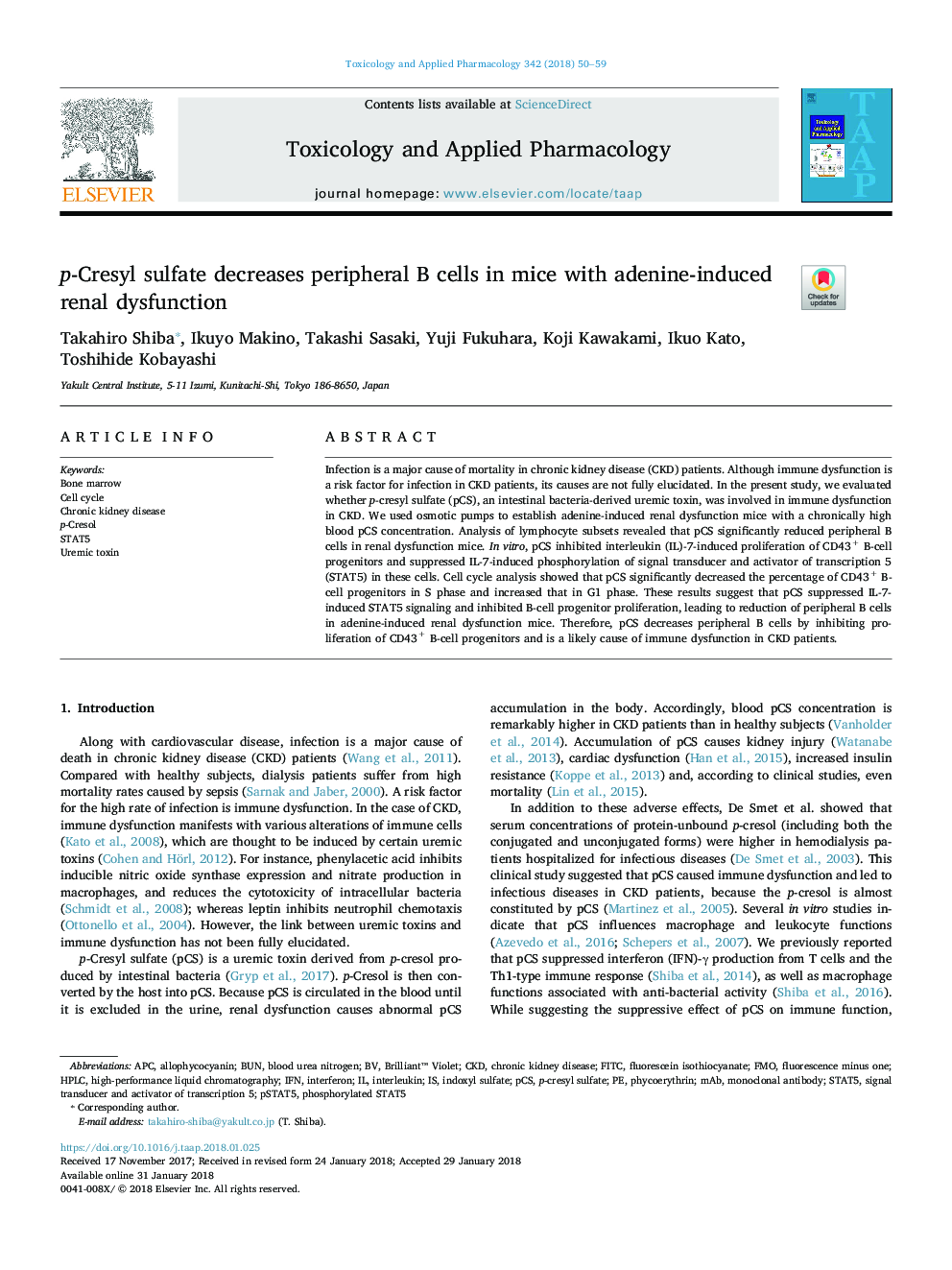| Article ID | Journal | Published Year | Pages | File Type |
|---|---|---|---|---|
| 8538790 | Toxicology and Applied Pharmacology | 2018 | 10 Pages |
Abstract
Infection is a major cause of mortality in chronic kidney disease (CKD) patients. Although immune dysfunction is a risk factor for infection in CKD patients, its causes are not fully elucidated. In the present study, we evaluated whether p-cresyl sulfate (pCS), an intestinal bacteria-derived uremic toxin, was involved in immune dysfunction in CKD. We used osmotic pumps to establish adenine-induced renal dysfunction mice with a chronically high blood pCS concentration. Analysis of lymphocyte subsets revealed that pCS significantly reduced peripheral B cells in renal dysfunction mice. In vitro, pCS inhibited interleukin (IL)-7-induced proliferation of CD43+ B-cell progenitors and suppressed IL-7-induced phosphorylation of signal transducer and activator of transcription 5 (STAT5) in these cells. Cell cycle analysis showed that pCS significantly decreased the percentage of CD43+ B-cell progenitors in S phase and increased that in G1 phase. These results suggest that pCS suppressed IL-7-induced STAT5 signaling and inhibited B-cell progenitor proliferation, leading to reduction of peripheral B cells in adenine-induced renal dysfunction mice. Therefore, pCS decreases peripheral B cells by inhibiting proliferation of CD43+ B-cell progenitors and is a likely cause of immune dysfunction in CKD patients.
Keywords
STAT5mAbFITCAPCFMOp-cresolallophycocyaninMonoclonal antibodyinterferonIFNinterleukinchronic kidney diseaseuremic toxinBUNPCsindoxyl sulfatephycoerythrinsignal transducer and activator of transcription 5fluorescein isothiocyanatefluorescence minus onebone marrowCKDblood urea nitrogenp-cresyl sulfateCell cyclehigh-performance liquid chromatographyHPLC
Related Topics
Life Sciences
Environmental Science
Health, Toxicology and Mutagenesis
Authors
Takahiro Shiba, Ikuyo Makino, Takashi Sasaki, Yuji Fukuhara, Koji Kawakami, Ikuo Kato, Toshihide Kobayashi,
